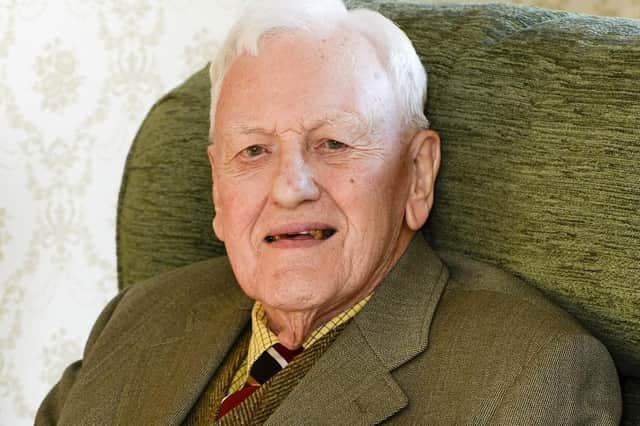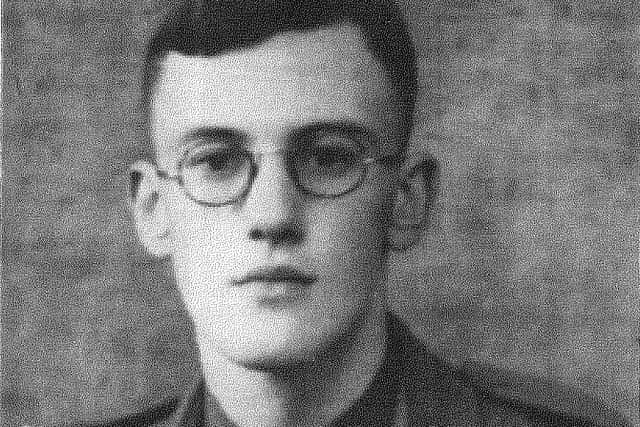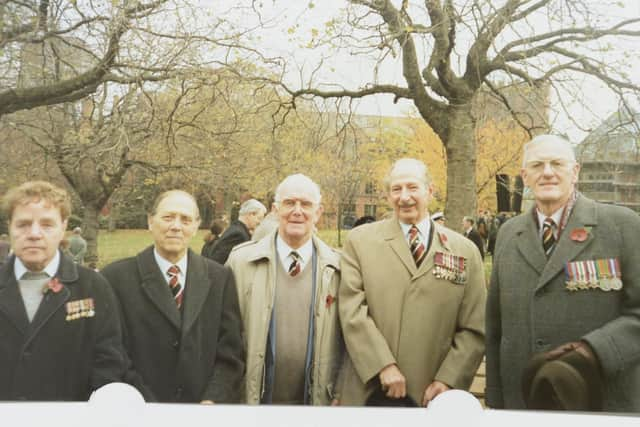Sheffield veteran recalls memories of Christmas during World War Two


Geoffrey Winter, aged 96, of Ecclesall, stepped ashore onto a beach north of Reggio di Calabria, on the west coat of Italy in September 3 1943, leading a platoon in the fight against the Germans.Â
Then, aged 20 and a lieutenant in the 1st battalion the Yorkshire and Lancaster regiment fifth infantry division, he had previously commanded 12th platoon in '˜B' company through Sicily.


Advertisement
Hide AdAdvertisement
Hide AdHowever, their numbers had now depleted as many had been hospitalised after contracting malaria in Sicily, where it was rife.
Geoffrey said: 'To begin with we met very little opposition from the Germans, but my platoon had become under strength. I led the platoon in a bayonet charge to capture a German machine gun position, and at the end about eight men were wounded.
'We later moved into mountainous country, the weather was dreadful. It was freezing cold and raining and we had no shelter, lying on the wet grass with only the clothes off our backs.'


As December grew closer, the battalion were on the move again, all the while with heavy German artillery whirring over their heads, but still no contact had been made.Â
Advertisement
Hide AdAdvertisement
Hide Ad'The German positions were still not close and things were very quiet indeed,' Geoffrey added. 'So, it was decided that over Christmas one company at a time should move behind the front line some distance some shelter.
'It was a few miles away on foot where there were a group of deserted farm buildings, they were all under cover and that was the great thing. Unusually for the army they issued bottles or cans of beer, it was the only time ever I knew of it happening.
'They were also very generous to the five officers, of which there were only three left including myself, they gave us a bottle of whiskey, a bottle of gin and a bottle of sherry.
'We had lots of food, as the quarter masters department would usually supply food based on the amount of men who should have been there. At the time there should have been around 33, but because we were do depleted we only had about 20.Â
Advertisement
Hide AdAdvertisement
Hide Ad'Another treat was bread which we didn't usually get, as we normally had to make do with hard biscuits.
'We didn't have anything to do but enjoy ourselves as much as we could.'
Shortly after Christmas 1943, Geoffrey was transferred to '˜S' company, to take command of the newly formed Assault Pioneer platoon, ready to launch an attack across the River Garigliano.
'We had 300 casualties in a day or so, and 60 were killed,' he said. 'For many men, that Christmas had been their last.'
Advertisement
Hide AdAdvertisement
Hide AdThe platoon were later moved to Palestine for training, where they would spend another Christmas, albeit not in the height of fighting like the previous year.Â
After the war ended, Geoffrey, then aged 23, returned to his studies at Corpus Christi College in Cambridge, before joining the Colonial Service as an education officer in Ghana where he met his wife Fleur.
The pair returned to England after the birth of their son John, later welcoming daughter Vanessa.
Geoffrey then went on to be appointed Chief Education Officer in the North East Riding of Yorkshire, before voluntarily retiring and becoming a principal lecturer at what is now Sheffield Hallam University.Â
Advertisement
Hide AdAdvertisement
Hide AdAlthough, as he says, it may be a long shot, he would like to hear from any remaining survivors who fought with the 1st battalion the Yorkshire and Lancaster regiment and asks if they could get in touch with The Star.Â
